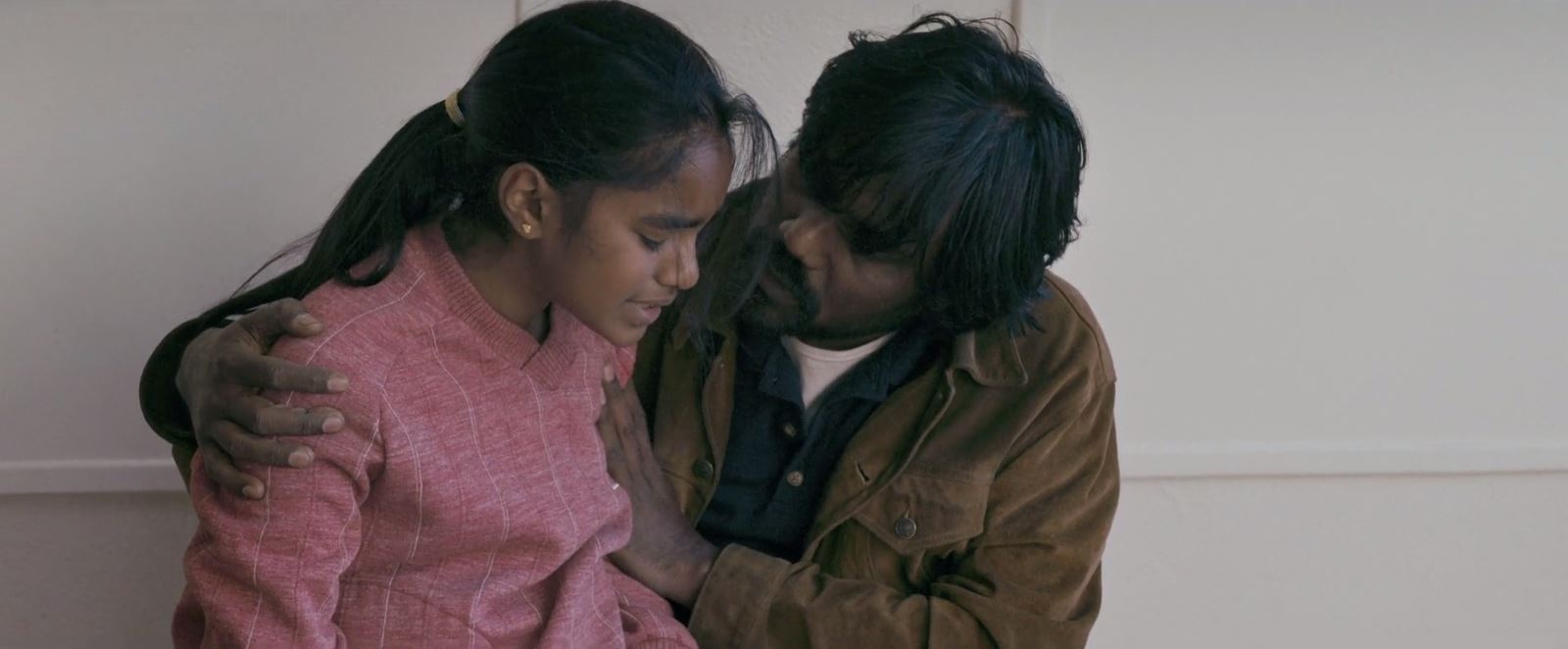Dheepan is a realistic portrayal of the refugee immigrant experience undermined by a third act tonal shift towards the melodramatic. The film opens on wartorn Sri Lanka, where bodies are being cremated en masse as families are broken and the individuals remaining struggle to survive. A woman searches the camp for a girl without a mother and we soon find out why as she takes a girl to a tent with a soldier and another man. The three civilians are going to adopt the names of a recently deceased family. Forget their previous lives, the man, woman, and child are now Dheepan (Antonythasan Jesuthasan), Yalini (Kalieaswari Srinivasan), and Illyaal (Claudine Vinasithamby) and will be migrating to France with their newfound passports. When they arrive, they are placed into housing and attempt to start a new, better life.
Jacques Audiarad (A Prophet) is known for directing films with uncompromising detail. He continues that trend here as he probes the personal struggles of those escaping a conflict and assimilating into a new culture. The main characters are not just escaping their homeland, they are strangers posing as a family using passports of the deceased, inventing fake backstories along the way. They are desperate and not necessarily virtuous. Audiard does not spare any of the characters from his gaze. Dheepan and Yalini turn blind eyes to the activities in their neighborhood to ensure their safety and Illayaal reacts violently when rejected by other schoolchildren. The director isn’t interested in a clean tale of redemption or upwards mobility, he wants to portray the grim sacrifices made to survive in a foreign land.

This continues until the latter portion of the film clashes with the initial intent. As tension increases between rival factions within their apartment complex, Dheepan makes a sudden, bold move. Without revealing too much, this action is supported by his past but, in light of the earlier tone of the film, is a drastic and unnecessary change. In a Hollywood production, this type of ending would be typical if not welcome, but here it breaks the established immersion. Audiard’s goal with this decision was probably to show how the experience of living through a conflict remains long after the danger has passed, as evidenced by brief foreshadowing flashbacks, but the bravado it is presented with almost glamorizes the violence that takes place.
It’s a shame that the strong setup is wasted by the action set pieces because the progression of the characters provided a compelling story. We were able to watch as they scrapped their way to a better life, moving from a barren apartment to a furnished home, from individuals using each other for personal benefit to a family unit, and from strangers in an alien world to a gradual incorporation into their new milieu. Instead of steadily gaining speed with the naturally escalating tension, Audiard’s examination of the complexities of immigration is gravely injured by his changing interests and only hobbles to the finish line.

3/5 stars.
